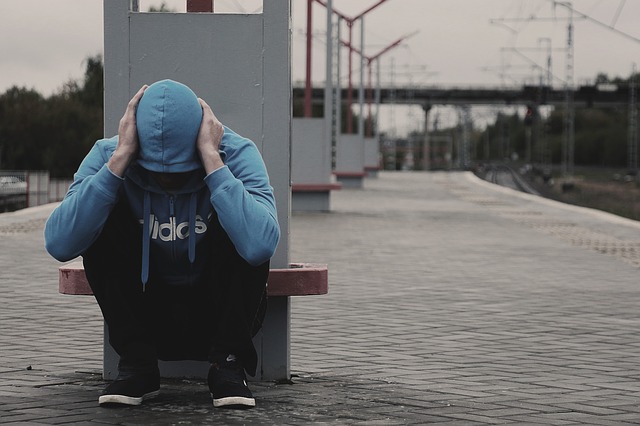- Home
- Types of Addiction
- Opioid Addiction
Opioid Addiction
Opioids are a class of drugs which include fentanyl, heroin and some legally prescribed pain relief drugs.
They can be derived from the opium poppy plant, and when consumed they have an active impact on the brain, causing a wide variety of effects.
Opioids can be natural like morphine, artificial like fentanyl, or semi-synthetic like oxycodone (known as the prescription drug OxyContin).
Legal opioids are often used in hospitals and available in pharmaceuticals as a treatment for uncomfortable amounts of pain.
Common prescription opioids include OxyContin, Codeine, and Vicodin, while stronger opioids like morphine and methadone are used to treat severe pain in hospital settings.
Are Opioids Addictive?

As well as their pain relief properties, the drugs can also give a ‘high’, and with sustained use, you can become addicted to opioids like any other addictive substance.
Opioid addiction is a serious public health concern, especially as it can arise from the misuse and abuse of legal and prescribed drugs.
In the U.S in particular, the population struggles with widespread addiction or dependence on opioids, in what is commonly referred to as the ‘opioid epidemic’.
One of the primary risks associated with opioid addiction is the risk of an overdose.
Legal opioids and illegal opioids both carry the risk of an overdose, especially if used without following the proper direction.
An overdose of an opioid can be fatal and leads to up to 50,000 yearly deaths in the U.S alone.
How Do I Know If I’m Addicted To Opioids?

It can be difficult to establish whether or not you, as a frequent user of opioids, are experiencing opioid addiction without a formal medical diagnosis.
One way to establish whether or not you might be addicted to opioids is to understand the risk factors that are linked with the development and onset of opioid addiction, as well as knowing the list of common symptoms.
Risk Factors For Opioid Addiction

The risk factors for opioid addiction don’t always correlate with an opioid addiction diagnosis, however they can often point to whether or not you might be at risk of opioid addiction.
The risk factors cover a wide range of personal features, such as your sex life, history of drug use, socio-economic background and age.
The list of risk factors includes:
- Unemployment or unstable financial situation: A lack of financial stability is one of the biggest causes of stress, and high levels of stress are strongly correlated with the abuse of drugs, including opioids.
- A family or personal history of substance abuse: If your or your family members have struggled with addiction in the past, it can be a key indicator that you are vulnerable to becoming addicted to opioids.
- Depression, anxiety, and other diagnoses of mental illness: Personal experience of depression or anxiety can suggest that you could be vulnerable to opioid addiction. This is because, when opioids are taken, they can provide you with a relaxing ‘high’ which can relieve symptoms of anxiety or depression, and lead to self-medication and continued usage.
- Young age: Young adults and adolescents are still in a stage of neurological development, and are therefore more likely to engage in ‘risky’ behaviours. This is because the frontal lobe, which controls impulsive actions and executive function is not fully mature, meaning that young people can be more vulnerable to addiction.
- Your sex: If you are a woman, you’re statistically more likely to develop an addiction to opioids than your male counterparts. Compared to men, women are more likely to be diagnosed with chronic pain, and therefore are more likely to be prescribed and use opioids. In addition to this, the prescription of opioids is more likely to be at a higher dose and for a longer period, meaning that a woman is more likely to become addicted to opioids than a man.
If you fall under one or more of these risk factors, you should be aware of the risk of opioid addiction when using, even legal opioid-based drugs.
Common Symptoms Of Opioid Addiction

Whether you yourself are worried about your use of opioids, or you’re concerned about someone else’s potential misuse of opioids, there are often common symptoms that can be suggestive of opioid addiction.
The primary symptom of opioid addiction is cravings for opioids, and regular use beyond what has been prescribed.
If you feel like you need to continue your opioid usage after your prescription has ended, or that you lack control over your usage of opioids, it is likely that you are experiencing opioid addiction.
Beyond these symptoms, other additional symptoms of opioid addiction can physical, psychological and behavioural.
These can include:
- A decreased ability to make rational decisions
- The avoidance of key responsibilities
- Decreased levels of motivation for study, work, or social commitments
- The onset of depressive episodes and anxiety attacks
- Increased irritability and lashing out
- Unpredictable mood swings
If you can link any of these symptoms to increased dependency on opioids, in either you or someone else, this could indicate an addiction to opioids.
It is important that opioid addiction is addressed as quickly as possible, no matter how ‘mild’, as it can quickly develop into something more serious and spiral out of your control.
The Impact Of Opioid Addiction

Opioid addiction can lead to severe social, financial, legal and health-related consequences.
The primary impact of opioid addiction on your health is the risk of an overdose.
An overdose can lead to:
- Unconsciousness
- Vomiting
- Irregular breathing
- An erratic pulse
- Death
It is imperative that an opioid overdose is treated by medical professionals as quickly as possible to avoid the most extreme consequences.
In addition to the health risks, opioid addiction can have unpredictable knock-on effects on the rest of your life too.

Correlated with depression and a loss of motivation, opioid addiction can lead you to withdraw from your commitments to your family and friends, and the shrinking of your social circle.
This reduces the support you get from people close to you, making the development of a severe opioid addiction even more likely once it has begun.
Like many other addictions, it also risks impacting your finances.
Keeping up with opioid cravings can be expensive, and can take a significant chunk out of your income.
If the addiction is severe enough, at the extreme end of opioid addiction, people sometimes commit criminal actions to help fuel their addiction.
How To Prevent Opioid Addiction

The use of legal, prescribed opioids does not lead to addiction in the majority of people.
However, if you are using opioids you should be aware of the steps you can take to avoid developing an opioid addiction.
Firstly, you should avoid using opioids to manage long term or chronic pain.
The use of opioids carries the least risk when they are used for less than three days.
If the symptoms you are using opioids to relieve are going to last longer than this, consult with your physician or pharmacist about alternative forms of medication, and discuss your concerns about prolonged opioid use.

When you are using prescribed opioids for short term use, ensure that you are taking low doses as infrequently as possible – in line with your physician’s recommendations.
Never exceed the terms of your prescription without consulting with a medical professional first, and always be aware of the risk of addiction that comes with continued opioid use.
Other, less addictive treatments are often available to deal with chronic or long-term pain, and these can even include non-pharmacological treatments and therapies.
Treatment For Opioid Addiction

In the instance where you are seeking treatment for opioid addiction, there should be many options available to you.
Due to the highly addictive nature of opioids, and the risk of cravings, the most effective option for dealing with opioid addiction is residential addiction treatment at an inpatient facility.
This treatment will involve a detox phase, where all traces of the drug are removed from your body and you are supported through the onset of cravings and any withdrawal symptoms.

It will also include a period of therapeutic intervention, such as Cognitive Behavioural Therapy (CBT) where you will understand the thoughts and feelings that lead to negative, addiction-supporting behaviours.
Understanding the patterns that lead to these behaviours will help you to make more informed choices going into the future.
After your time in residential addiction treatment, you will be able to access the support of groups like Narcotics Anonymous (NA) where you can learn from the experiences of other people with previous addictions.
Getting Help Today

Opioid addiction can affect all of us, whether our use of opioids is legal or not.
Despite their effectiveness as painkillers, these drugs can prove to be some of the most addictive substances in the world.
If you’re struggling to control your opioid use, or are concerned for someone you love, you don’t have to do it alone.
Although it is difficult, opioid addiction can be overcome.
Reach out to our expert team today for confidential advice and guidance on how to get the best treatment for your individual needs.


